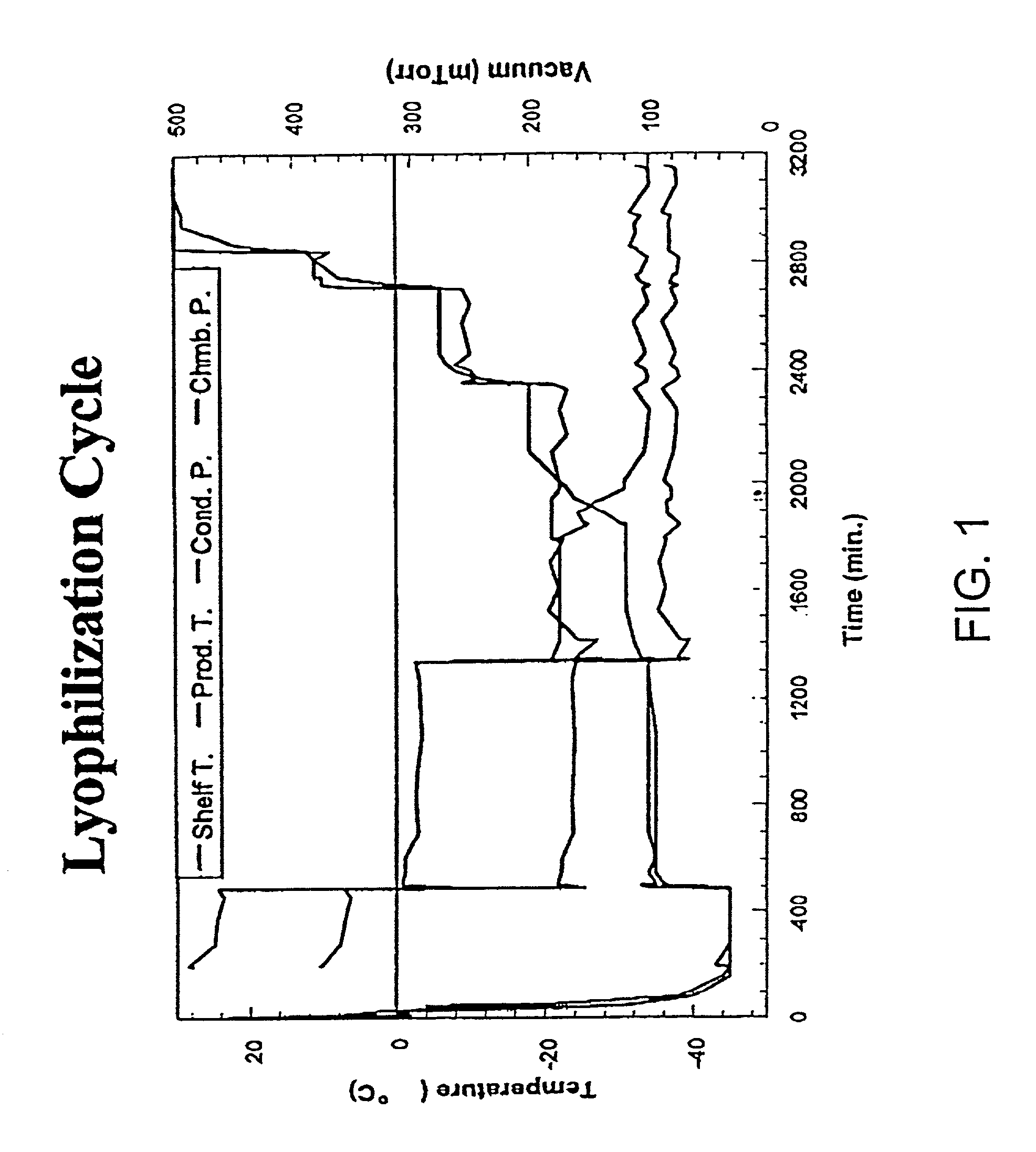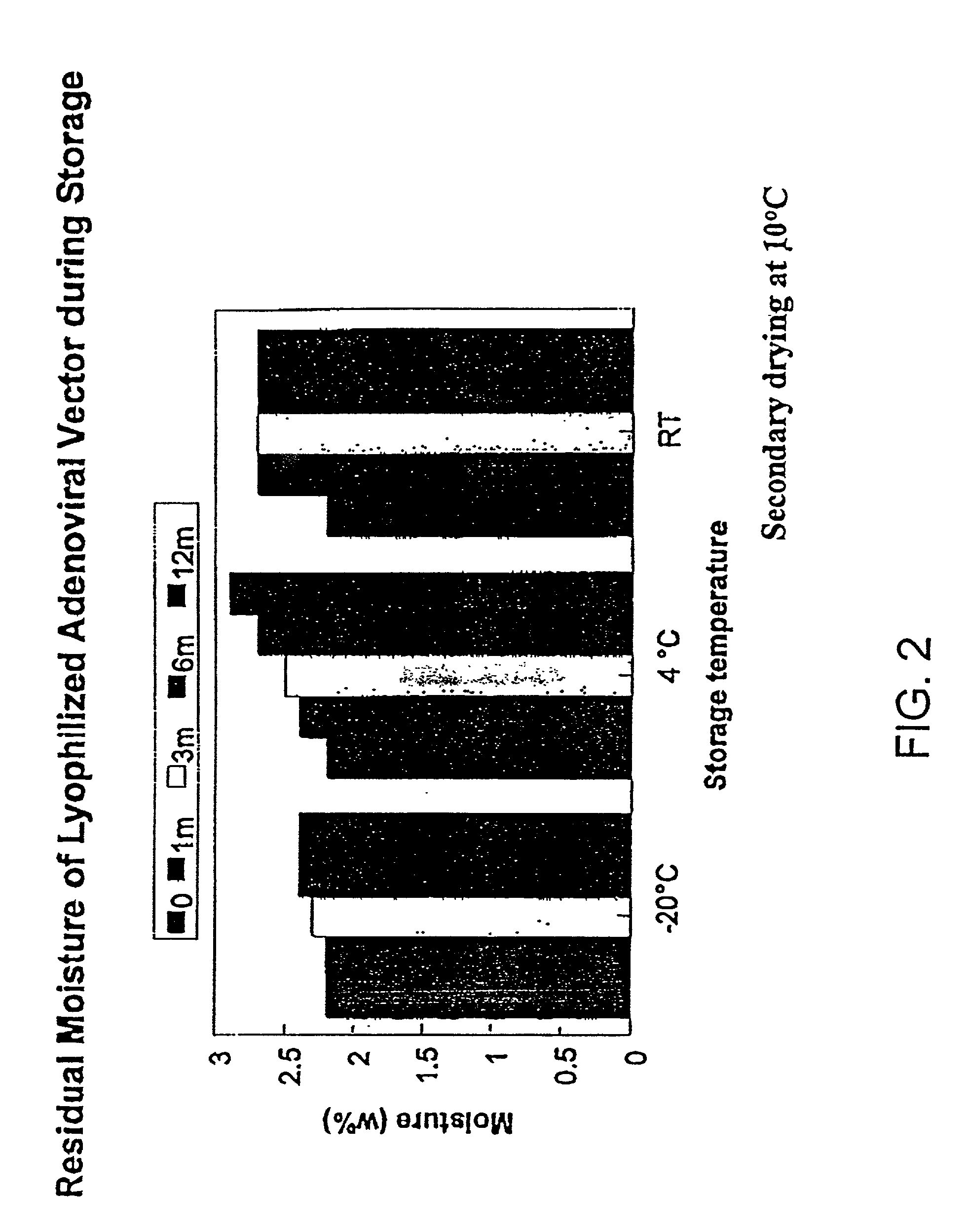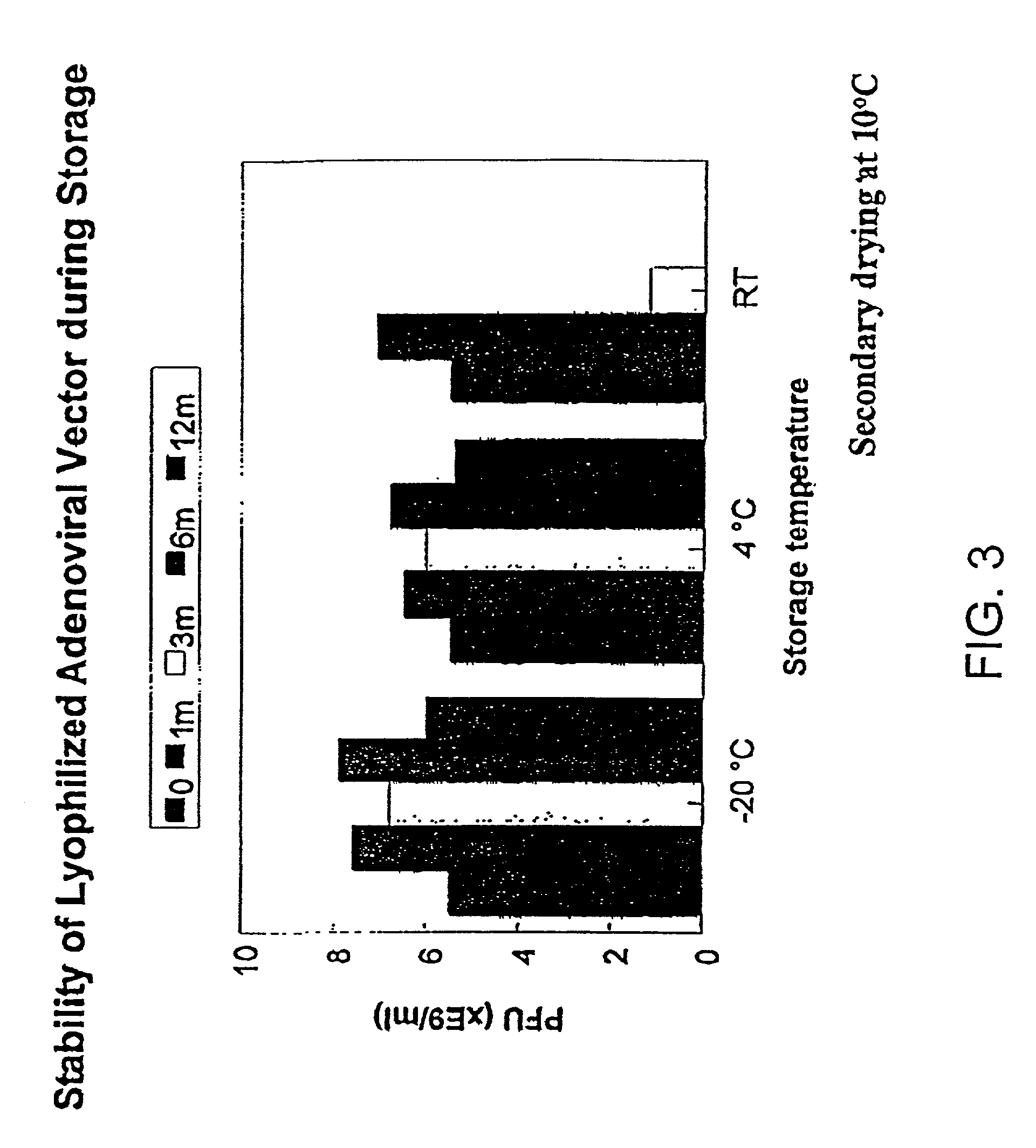Formulation of adenovirus for gene therapy
a technology of adenovirus and gene therapy, which is applied in the field of molecular biology, virus production and gene therapy, can solve the problems of affecting the viability of a viral vector, preventing its use as a gene therapy vector, and not only being expensive in ultra-low temperature storage, and achieves high infectivity
- Summary
- Abstract
- Description
- Claims
- Application Information
AI Technical Summary
Benefits of technology
Problems solved by technology
Method used
Image
Examples
example 1
Materials and Methods
[0188]Lyophilizer A Dura-stop μp lyophilizer (FTSsystems) with in process sample retrieving device was used. The lyophilizer is equipped with both thermocouple vacuum gauge and capacitance manometer for vacuum measurement. Condenser temperature is programmed to reach to −80° C. Vials were stoppered at the end of each run with a build-in mechanical stoppering device.
Residual Moisture Measurement
[0189]Residual moisture in freeze dried product was analyzed by a Karl-Fisher type coulometer (Mettler DL37, KF coulometer).
[0190]HPLC analysis of samples was done on a Beckman Gold HPLC system.
Vials and Stoppers
[0191]Borosilicate 3 ml with 13 mm opening lyo vials and their corresponding butyl rubber stoppers (both from Wheaton) were used for both lyophilization and liquid formulation development. The stoppered vials were capped with Flip-off aluminum caps using a capping device (LW312 Westcapper, The West Company).
example 2
Lyophilization: Initial Cycle and Formulation Development
[0192]There are three main process variables that can be programmed to achieve optimal freeze-drying. Those are shelf temperature, chamber pressure, and lyophilization step duration time. To avoid cake collapse, shelf temperature need to be set at temperatures 2–3° C. below the glass transition or eutectic temperature of the frozen formulation. Both the glass transition and eutectic temperatures of a formulation can be determined by differential scanning calorimetry (DSC) analysis. Chamber pressure is generally set at below the ice vapor pressure of the frozen formulation. The ice vapor pressure is dependent on the shelf temperature and chamber pressure. Too high a chamber pressure will reduce the drying rate by reducing the pressure differential between the ice and the surrounding, while too low a pressure will also slow down drying rate by reducing the heat transfer rate from the shelf to the vials. The development of a lyop...
example 3
Cycle and Formulation Development with Virus in Formulation
[0204]Effect of Sucrose Concentration in Formulation. Cycle and formulation were further optimized according to virus recovery after lyophilization analyzed by both HPLC and plaque forming unit (PFU) assays. Table 5 shows the virus recoveries immediate after drying in different formulations using the above drying cycle. Variation of the percentage of sucrose in the formulation had significant effect on virus recoveries.
[0205]
TABLE 5Recoveries of Virus After LyophilizationFormulationM % / S % / HSA %AppearanceResidual moistureRecovery (%)6 / 0 / 0.5good cake 0.44% 0 6 / 3.5 / 0.5good cake2.2%566 / 5 / 0.5good cake2.5%816 / 6 / 0.5good cake2.7%120 6 / 7 / 0.5good cake2.8%120 6 / 8 / 0.5good cake3.3%936 / 9 / 0.5good cake3.7%120
[0206]Residual moisture in the freeze-dried product increased as the sucrose percentage increased. A minimum sucrose concentration of 5% is required in the formulation to maintain a good virus recovery after lyophilization. Similar su...
PUM
 Login to View More
Login to View More Abstract
Description
Claims
Application Information
 Login to View More
Login to View More - R&D
- Intellectual Property
- Life Sciences
- Materials
- Tech Scout
- Unparalleled Data Quality
- Higher Quality Content
- 60% Fewer Hallucinations
Browse by: Latest US Patents, China's latest patents, Technical Efficacy Thesaurus, Application Domain, Technology Topic, Popular Technical Reports.
© 2025 PatSnap. All rights reserved.Legal|Privacy policy|Modern Slavery Act Transparency Statement|Sitemap|About US| Contact US: help@patsnap.com



